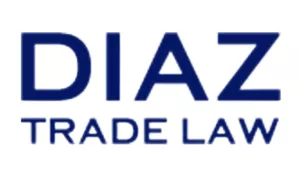- with Senior Company Executives and HR
|
!! UPCOMING False Claims Act Webinar !! Learn how to expose fraud, blow the whistle on unfair competition, and avoid being the target of an FCA investigation. May 9, 2024 | 12:00 PM ET Speakers: Jennifer Diaz, President & Dana Watts, Of Counsel, Diaz Trade Law and Jonathan Tycko, Partner, Tycko & Zavareei LLP Register HERE. |
The False Claims Act (FCA) is a powerful federal anti-fraud law that incentivizes average people to expose fraud. The law attempts to reward whistleblowers and disincentivize committing fraud and can be used to expose customs fraud.
What is the False Claims Act?
The FCA, 31 U.S.C. §§ 3729 – 3733, is a federal statute enacted in 1863 in response to defense contractor fraud during the Civil War.
The FCA provides that any person who knowingly submits, or causes to submit, false claims to the government is liable for three times the government's damages plus a penalty. Conspiring to commit these acts also is a violation of the FCA.
The FCA allows the U.S. government to investigate perpetrators of fraud directly, but it also provides an avenue for private citizens to become whistleblowers and expose fraud.
The Department of Justice (DOJ) obtained more than $2.68 billion in settlements and judgments involving fraud and false claims in the fiscal year ending Sept. 30, 2023.
The FCA and International Trade
The FCA is commonly used to prosecute financial crime such as misuse of federal grants and healthcare related claims. However, in recent years the FCA has been increasingly used to allege customs duty fraud and other trade violations. In fact, in a 2020 report, the Department of Justice (DOJ) highlighted the use of the FCA to "safeguard American businesses and workers by promoting compliance with customs laws [and] trade agreements."
The FCA can apply any time an individual or entity commits customs fraud – for example importers may be charged with failing to disclose information to customs, for submitting false documents to avoid paying duties, or for using improper HTS codes.
Get Paid to Expose Fraud
The FCA allows the U.S. government to pursue perpetrators of fraud, but it also allows private citizens to file lawsuits on behalf of the government. These lawsuits are called "qui tam" actions ("qui tam" originates from the Latin phrase "he who brings an action for the king as well as for himself.")
When a qui tam lawsuit is successful, the party that initiated the case—called a "relator"—is entitled to a substantial monetary reward, ranging between 15% and 30% of the amount recovered for the government.
A qui tam lawsuit has another major advantage: it engages the DOJ in the case, and typically results in the opening of an investigation by DOJ into the allegations made in the case. So, a qui tam lawsuit is a means of bringing allegations of customs fraud to the attention of the government, and triggering a serious inquiry by the government into those allegations.
Blow the Whistle on Law-Breaking Competitors
While the term "whistleblower" is commonly associated with a company insider, there is another type of whistleblower: a competitor. Competitors understand usual business practices and can be in a unique position to recognize fraud. If you believe that a competitor is unfairly and unlawfully beating you in the marketplace, you can report it to the government to expose potential fraud.
Protect Yourself from Whistleblowers
The FCA is a tool for you to report fraudulent competitor activity, but don't forget your competitors can also report YOU under the FCA. The best way to ensure your business is protected from an FCA investigation is to have an airtight compliance program. CBP expects importers to use "reasonable care" to ensure compliance with relevant rules and regulations. Your plan should include processes to ensure accurate information and compliance with: merchandise descriptions, classifications, product valuations, country of origin, forced labor prevention, intellectual property rights, and more.
The content of this article is intended to provide a general guide to the subject matter. Specialist advice should be sought about your specific circumstances.
[View Source]

